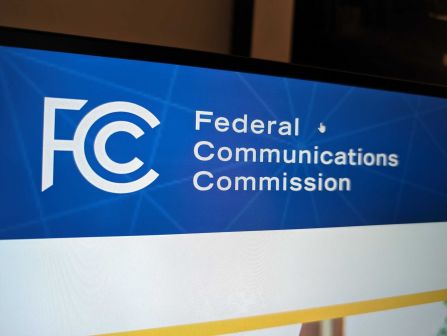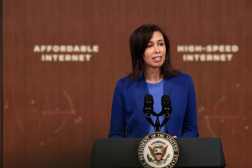Congress members blast FCC’s changes to state oversight of Lifeline program

More than two dozen members of Congress are urging the Federal Communications Commission to reconsider some of the recent changes it made to the federal program providing subsidies for low-income families to access telephone and broadband internet service, claiming that the reforms make it harder for states to monitor the program and cut down on fraud.
In a letter last week, 10 senators and 15 representatives — all but one of whom are Republican — pleaded with FCC Chairman Tom Wheeler to undo some of the changes the commission made to its “Lifeline” program in late March. While the bulk of the reforms have to do with expanding the subsidies to include internet service access, the bipartisan group took issue with the commission drastically reducing state oversight of which providers and people can participate in the program.
“States are still the best cops on the beat,” the lawmakers wrote. “We worry this rule change could increase the risk of waste, fraud and abuse in the program, as well as the vital check on service quality that existed prior to the FCC’s decision.”
Specifically, the legislators — which include former presidential candidate Sen. Marco Rubio, R-Fla. — worry about the change to the Lifeline program that gives the FCC the authority to determine which internet providers will be able to offer the subsidized service. Previously, state public utility commissions had that power, and the lawmakers claim that stripping them of that responsibility violates the federal law laying out the verification process.
“Any change to this framework must be made by Congress,” the members wrote.
[Read more: States waiting, mulling legal action on FCC’s Lifeline reforms]
That view mirrors the position of the utility commissioners themselves, as the National Association of Regulatory Utility Commissioners filed suit against the FCC in federal court making similar arguments earlier this month. Several state commissions also submitted comments and met with FCC commissioners protesting the change in advance of the final vote on Lifeline reforms, according to FCC filings.
But the lawmakers also worry about the commission’s decision to create a centralized, third party “National Eligibility Verifier” to determine which people qualify for the program’s subsidies. Some states have already set up their own systems for that process, often checking against other state and federal databases, and the legislators believe “the order provides little guidance for how the National Verifier will coordinate with those states or to what extent states will be permitted to continuing using their own automated eligibility systems.”
An FCC spokesman didn’t immediately respond to a request for comment from StateScoop on the letter’s claims. However, telecom industry advocates and legal experts have pushed back against similar arguments in the past.
Danielle Frappier, co-chair of the communications practice at the firm Davis Wright Tremaine and a specialist in Lifeline matters, previously told StateScoop that it’s “crazy” that states would want to maintain the ability to authorize providers, since that’s resulted in a patchwork of different requirements that make it hard for companies hoping to offer Lifeline service nationwide.
“I think [states] are just loathe to give up jurisdiction in a lot of cases, I just don’t see any other reason,” Frappier said. “If they really thought about it, they’d say to themselves, ‘There can be national standards that we can enforce locally.’”
She’s similarly puzzled by the resistance to the third-party verifier system, since many states already depend on the FCC’s own “National Lifeline Accountability Database” to track and verify the program’s users.
“Why would a state feel like they absolutely need to do it if we can have one national system that’s working?” Frappier said. “States are crunched for cash, so why do you need to create a separate state database which is going to just add expense for the state and for carriers?”
Contact the reporter at alex.koma@statescoop.com, and follow him on Twitter @AlexKomaSNG.





